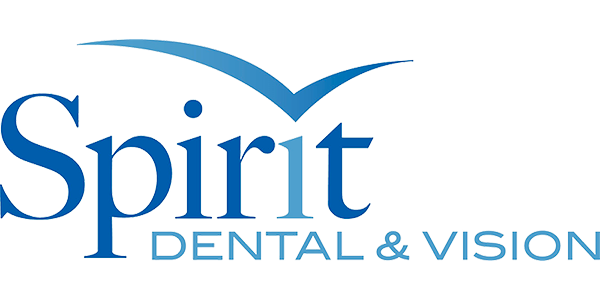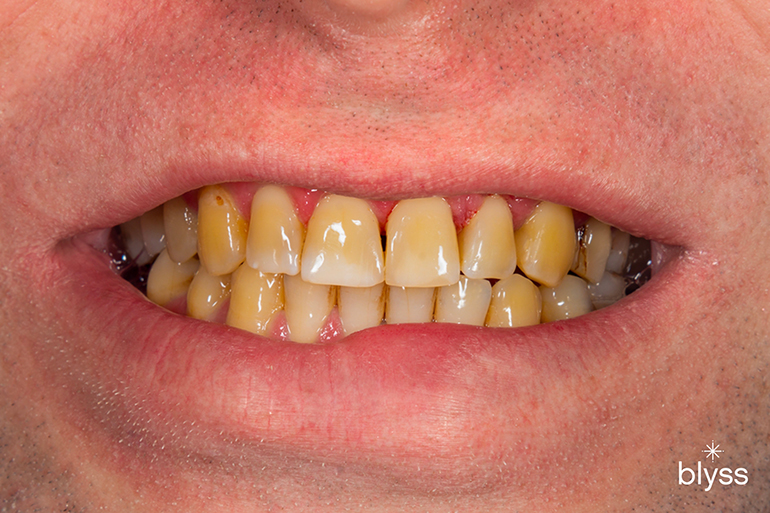Dental implants are a great way to replace missing teeth and have become a popular option for patients. But does dental insurance cover dental implants?
The answer is…maybe.
It all depends on your particular dental insurance plan.
Here’s a little secret about dental insurance: they’re all different.
I know, I know. You’re thinking, “Of course, they’re all different! That’s why I have to spend hours on the phone with customer service every year, trying to figure out what my benefits are.”
On a serious note, every dental insurance plan is different when it comes to what procedures they cover and how much they’ll reimburse you for those procedures. What, then, does your dental insurance cover?
What Does My Dental Implant Insurance Cover?
Previously, dental insurance did not cover dental implants. Luckily, if you have dental insurance now, you may be able to use it to help pay for your implants.
Dental implants are considered an elective procedure by most insurance companies, which means most dental plans do not cover them.
But there are a few exceptions.
For example, if you have suffered an injury to your jaw that has resulted in tooth loss, your insurance company may agree to pay for part of the implant surgery.
However, this is usually only the case if you have suffered an accident or injury that has caused significant damage to your teeth.
It’s also worth noting that some insurance plans cover pre-procedure treatments like consultation, CT scan, tooth extraction, or even bone grafting to help you save money on dental implants.
In most cases, you will be responsible for paying for the entirety of your implant surgery out-of-pocket.
Blyss Dental Tip: Ask your dentist for a full list of pre-procedure treatments you need before getting dental implants so you can check with your insurance provider if these are covered.
How Much Does Dental Insurance Typically Cover?
Unfortunately, there isn’t a one-size-fits-all answer to that question. Every insurance policy is different, and some policies don’t cover dental implants at all.
In general, most dental implant insurance policies will cover a portion of the cost of the procedure.
However, the percentage they cover varies widely from policy to policy. Some policies may only cover 50% of the cost, while others may cover up to 70%. Again, it all depends on your particular policy.
Some policies have a maximum dollar amount that they will pay out for dental implants.
For example, a policy might have a $2,000 maximum payout for dental implants per year. If your procedure costs exceed $2,000, you will be responsible for paying the difference out of pocket.
How to Use Your Dental Insurance to Pay for Implants
If you are interested in getting dental implants, there are steps you can take to maximize your insurance coverage and lower the cost of your implant surgery.
A. Know What Plans Are Available to You
The first step in using your insurance to pay for implants is finding out which plans are available.
This will require a bit of research on your part, as different dental insurance providers cover different procedures and amounts.
B. Explore Details and Limitations of Dental Plans That Cover Implants
Once you have reviewed the different plan types, it’s time to look a little closer at the plans that cover implants.
In particular, you will want to review the following:
- Missing Tooth Clause. This clause details the percentage or amount of your implant surgery that will be covered by insurance if you were missing one or more teeth before the procedure. Some insurers wouldn’t cover any further restoration of a missing tooth if you lost your tooth before you signed up for this insurance.
- Maximums. Many insurance policies have a yearly maximum, meaning there is a limit to how much you can spend on medical expenses, such as dental implants, in one year. You should also be aware that some insurance plans may have a “lifetime maximum” limit which is the amount of money you can spend on medical expenses throughout your lifetime.
- Pre-Approval. Some policies require you to get pre-approval for your dental implant procedure before undergoing treatment. This means you will have to undergo the insurance approval process before getting your implants, which may delay the procedure by several weeks or even months.
- Waiting Period. Some policies may have a waiting period after you sign up for a plan, which means you will not be able to file a claim until after that period of time has passed.
- Pre-existing Conditions. If you have any pre-existing conditions that impact your jaw, gums, or teeth, your insurance may not cover the entire cost of your implant surgery.
- Out-of-Pocket Costs. Many policies have high deductibles and copays, which require policyholders to pay out-of-pocket in addition to their insurance coverage.
C. Collect Required Documents for Payment Processing
Once you’ve determined which plan is right for you, it’s time to collect the required documents needed to process your payment.
Typically, this will include a copy of your insurance card and a receipt from your dental implant surgery.
Best Dental Insurance for Dental Implants in 2023
I know it can be overwhelming to sort through all the options, so our team did the research for you.
We evaluated the websites of different insurance providers. We weighed aspects like annual maximums and deductibles, the waiting period, and access to in-network providers.
Let’s dive into our top picks!
Delta Dental: Best For Accessibility

Delta’s member companies serve more than one-third of the estimated 166 million Americans with dental insurance.
Delta Dental has been a leader in the dental insurance industry since 1966 and is one of the most popular options among dentists today. It is one of the largest providers of dental insurance in the United States, covering over 85 million Americans.
With their Dental PPO Premier Individual Plan, you can benefit from dental implants with a 50% reimbursement rate, but there is a 12-month waiting period. Additionally, the plan offers excellent reimbursement amounts for both basic and major care. Here’s what a typical Delta Dental insurance plan looks like:
Pros
- Has an extensive network of dental care providers
- Is available all over the U.S. and its territories
- Allows $2,000 annual benefit maximum per person on average
- Lets you carry unused benefits to the next year
- Pays 80% for basic care and 50% for major care after waiting periods
Cons
- Waiting period of 12 months for dental implants
- Waiting periods for basic and major care
- $10 enrollment fee
- Pre-existing conditions not always covered
- Some plans only cover 50% of major procedures, like dental implants
MetLife: Best For Veterans

The MetLife VADIP plans are the most beneficial and comprehensive dental insurance plans for veterans who need implants. It offers no waiting periods, a generous annual maximum benefit of $500 after 12 months, and coverage for many different types of implants.
MetLife provides benefits to 20 million people with an expansive network of 490,000 dentist locations across the United States.
MetLife provides comprehensive dental insurance programs for veterans eligible for VA benefits. The VADIP (Veterans Affairs Dental Insurance Programs) plans feature high annual maximums and impressive implant benefits.
There are two plans available: Standard and High. Both cover dental implants, but the High Plan offers higher annual maximums and lower deductibles. Rates vary by region but generally range from $28 to $33 for the Standard Plan and $58 to $72 for the High Plan. Here’s what a typical MetLife insurance plan looks like:
Pros
- 2 dental insurance plans to choose from
- High Program Plan offers $3,000 in annual maximums per member
- Offers generous benefits for routine dental care and comprehensive services
- No waiting periods
Cons
- Plan has a 12-month lock-in, meaning you must remain in the plan for this length of time
- Effective dates could take up to six weeks to begin
- Dental implants are limited to no more than once in 10 years
Spirit Dental: Best For No Waiting Period

Spirit Dental offers comprehensive coverage that includes a range of both essential and elective procedures.
Based in St. Paul, Minnesota, Spirit Dental & Vision has been protecting smiles for over two decades.
Spirit Dental was among the first to provide no waiting periods on all dental procedures. Their annual maximums for coverage are among the highest in the market, offering users more extensive coverage for expensive dental treatments. Here’s what a typical Spirit insurance plan looks like:
Pros
- Approval guaranteed
- No waiting periods for most procedures
- Available in all 50 states
- Covers three cleanings per year
- Covers dental implants and major dental services
- Offers individual and group dental insurance plans
- Free online quotes
Cons
- May not cover all elective procedures
- Does not cover dental implants to replace pre-existing missing teeth
- Low annual coverage limits applied until 3 years of coverage
Cigna Dental: Best For Group Coverage

Cigna is a globally renowned, Connecticut-based managed healthcare and insurance provider that has been serving customers for more than 50 years.
The Cigna Group Dental HMO is the best choice for group benefits because this plan has no maximums or deductibles. Plus, this plan covers implants and implant-supported dentures, including placement, repair, removal, or restoration services.
With more than 190 million customer and patient relationships in more than 30 countries and jurisdictions, Cigna boasts extensive coverage across the U.S., Canada, and other countries around the world. Here’s what a typical Cigna insurance plan looks like:
Pros
- Covers several types of dental implants
- Reasonable rates for a plan that covers dental implants
- No need to file a claim when you visit a network dentist (they’ll file it automatically)
- Covers two teeth cleanings per year
- Well-known company with high ratings
Cons
- Must choose a primary care dentist
- Referrals required for specialty care
- Not available nationwide
- Dental implants aren’t covered on all plans
- Limits on certain implants you can get
Renaissance Dental: Best For On A Budget

This insurance company offers affordable nationwide dental insurance plans that are designed to provide individuals with high-quality care at an affordable price point.
Renaissance offers various types of plans, including PPOs (preferred provider organizations), with more than 375,000 dental access points nationwide.
Renaissance’s Plan II dental insurance for implants is an affordable option for dental insurance. Their less expensive policy is half the price and provides good coverage benefits. Here’s what a typical Renaissance insurance plan looks like:
Pros
- Pays 50% of implant services up to an annual maximum of $1,000
- Lower monthly premiums than many plans that include dental implants
- Can choose any dentist
Cons
- Major coverage requires a 12-month waiting period
- Not all plans are available in all states
Ameritas: Best Value for Money

The Ameritas Dental Network is one of America’s largest networks, with providers offering remarkable savings of up to 50% on out-of-pocket costs.
Ameritas PrimeStar® dental insurance plans make taking care of your teeth fast and easy. With no enrollment fees, you’ll have next-day coverage without any waiting periods on most dental plans. Even better, preventive visits such as exams and cleanings are covered up to 100%.
PrimeStar Total offers a benefits plan that covers 90% of basic care expenses after the first year and has an impressive annual maximum for dental care. Furthermore, the PPO plan also lets you have access to dental care outside of your provider network. Here’s what a typical Ameritas plan looks like:
Pros
- No waiting period on multiple plans
- Implants included up to coverage limits
- Allows out-of-network care (but may be more expensive)
- Pays at 80% in the first year for basic care before increasing to 90%
- Free quote online
Cons
- Annual maximums
- Limited first-year coverage amounts
- Low coverage in the first year
- Plans cover only up to 20% of major procedures for the first year
- Plans cover only up to 50% after the first year
Anthem: Best for Out-of-Network Coverage

Anthem’s dental insurance plans cover preventive care like regular cleanings, exams, X-rays, and procedures like fillings, crowns, and root canals.
Anthem’s dental insurance plan is an excellent choice for people who want comprehensive coverage.
Their Essential Choice PPO Dental Plans offer an extensive network of providers and are ideal for individuals and families seeking affordable dental care. With no waiting period for diagnostic and preventive services, customers can benefit from immediate coverage when visiting network dentists.
It also comes with higher annual benefit maximums of up to $2,500 and shorter waiting periods than traditional plans for basic, complex, and major services.
On June 28, 2022, Anthem announced a change of its corporate name to Elevance Health, Inc. Here’s what a typical Anthem insurance plan looks like:
Pros
- $2,000 in annual maximum
- Only a 6-month waiting period for major services
- Waiting period waived with proof of previous coverage
- Excellent group plans are available through employers
Cons
- Rates vary based on geography and demographics
- Only available in 14 states
- Rates may be higher cost than other similar plans
- Do not cover pre-existing conditions or cosmetic procedures
- Does not offer any discounts on certain services like cleanings and x-rays
United Healthcare: Runner-up for No Waiting Period

Individuals can enjoy coverage through the parent company Golden Rule Insurance by accessing United Healthcare dental insurance plans offered within 44 states and the District of Columbia, with premium rates depending on the local area.
United Healthcare has been providing quality health care since 1977 through its extensive network across the entire U.S.
United Healthcare’s Premier Plus plan is an excellent option for those seeking dental implant coverage. It covers 10% of implants on day one with no waiting periods and then increases to 40% after one year and 50% after two years. Additionally, it offers an annual maximum of $2,000 and a deductible of around $50 for individuals and $150 for families. It also allows for one implant per tooth every 60 months. Here’s what a typical United Healthcare insurance plan looks like:
Pros
- No waiting period for implant coverage
- No age restrictions
- No claims to file when you get care in-network
- Access to a wide dental network
Cons
- Not offered in every state
- Takes two years to get 50% coverage for implants
Comparing the Best Dental Insurance Plans for Dental Implants of 2023
| Company | No. of Plans | In-Network Providers | States Available | Implant Coverage | Annual Maximum (up to) | Coverage Limit | Deductibles | Waiting Period |
|---|---|---|---|---|---|---|---|---|
| Delta Dental | 4 | 155,000+ | 50 | 0% - 70% | $2,000 | Varies | Varies | 12 months |
| MetLife | 5 | 490,000 | 50 | 0% - 50% | $3,000 | $3,000 | $50 | None |
| Spirit Dental | Multiple | 110,000+ | 50 | 25% - 50% | $5,000 | $5,000 | $100 | None |
| Cigna Dental | 2 | 93,000 | 49 | 0% - 60% | $1,5000 | Varies | None | Varies |
| Renaissance | 2 | 375,000+ | Varies | 0% - 50% | $1,000 | $1,000 | $50 per individual; $150 for family | 12 months |
| Ameritas | Multiple | 425,000+ | Varies | 20% - 50% | $2,500 | $2,500 | $50 | Varies |
| Anthem | 1 | 133,500+ | 14 | 0% - 50% | $2,000 | $2,000, with annual maximum carryover | $50 per individual; $150 for family | None for preventative; 6 months for Major |
| United Healthcare | 1 | 182,000 | 44 | 10% - 50% | $2,000 | $2,000 | $50 per individual; $150 for family | None |
Note: Individual plans may vary in terms of coverage and availability. Double-check the coverage before signing up for a dental insurance plan.
How Do I Choose the Best Dental Insurance Plan for Implants?
Whether you need dental implants to restore a single tooth or many teeth, the first step is finding the right insurance plan.
There are many factors to consider when choosing a dental insurance plan for implants, including cost, coverage limits, and more.
- Make sure that the plan covers implants
- Look for low deductibles and copayments.
- Compare multiple plans before making a decision.
- Consider your budget.
- Get advice from your dental professional.
Cost of Dental Implants Without Insurance
The average cost of a dental implant in the US is anywhere from $3,000 to $7,000 per tooth, including a crown.
Many factors affect the cost of your implant procedure, including the number of teeth replaced, where you live, and your dentist’s skill level and experience.
The cost can increase if you need multiple implants or more complex procedures like bone grafting or sinus lifts.
It’s also important to consider that this is just for the actual procedure; it does not include any pre-implant exams, screenings, or follow-up care like X-rays or checkups that may be required after the procedure is complete.
Affording Dental Implants Without Insurance
If you don’t have insurance and are looking for ways to cover the cost of dental implants without breaking the bank, plenty of financing options are available.
Many dentists offer payment plans, allowing patients to spread out their payments over time instead of making one large upfront payment.
Other options include taking out a personal loan or utilizing third-party lenders like CareCredit or Lending Point, which specialize in financing medical procedures such as dental implants.
Dental Implant Tip: Get a no-interest loan at Blyss Dental! We offer some of the best loans that don’t carry heavy penalties should payment not be made in full. We offer loans that turn into standard 48-72-month plans after a grace period. Plus, all rates are disclosed ahead of time, so there won’t be any surprises.
Conclusion
Whether you are looking to restore a single tooth or multiple teeth, dental implants can be an effective and affordable way to improve your oral health.
However, finding the right insurance plan for your needs is key when considering implant procedures.
With so many factors to consider, including cost, coverage limits, and more, it’s important to do your research before choosing a plan.
And if you don’t have insurance coverage for implants, plenty of financing options can help make this procedure more affordable.
So if you’re ready to take the next step in improving your oral health and confidence with dental implants, start exploring your options with Blyss Dental today! Schedule a free consultation with us.
Sources Cited From
- Delta Dental: Unleash your smile power! (n.d.). https://www.deltadental.com/
- Dental Insurance Plans: Healthy Smiles Ahead. (n.d.). MetLife. https://www.metlife.com/
insurance/ dental-insurance/ - Spirit Dental Insurance. (n.d.). Dental Insurance Plans | Buy Dental Insurance Plans for Individuals, Families, and Seniors Online Today – Spirit Dental & Vision. https://spiritdental.com/
- Affordable Dental Insurance Plans for Individuals | Cigna. (n.d.). https://www.cigna.com/
individuals-families/ shop-plans/ dental-insurance-plans/ - Renaissance Dental. (n.d.). Renaissance for Group Members. https://
renaissancebenefits .com. Retrieved January 3, 2023, from https://renaissancebenefits.com/ - Affordable Individual Dental and Vision Insurance. (2022, May 27). Ameritas MyPlan. https://myplan.ameritas.com/
- Global insurance benefits solutions for expatriates, business travelers and individuals. (n.d.). https://www.uhcglobal.com/



